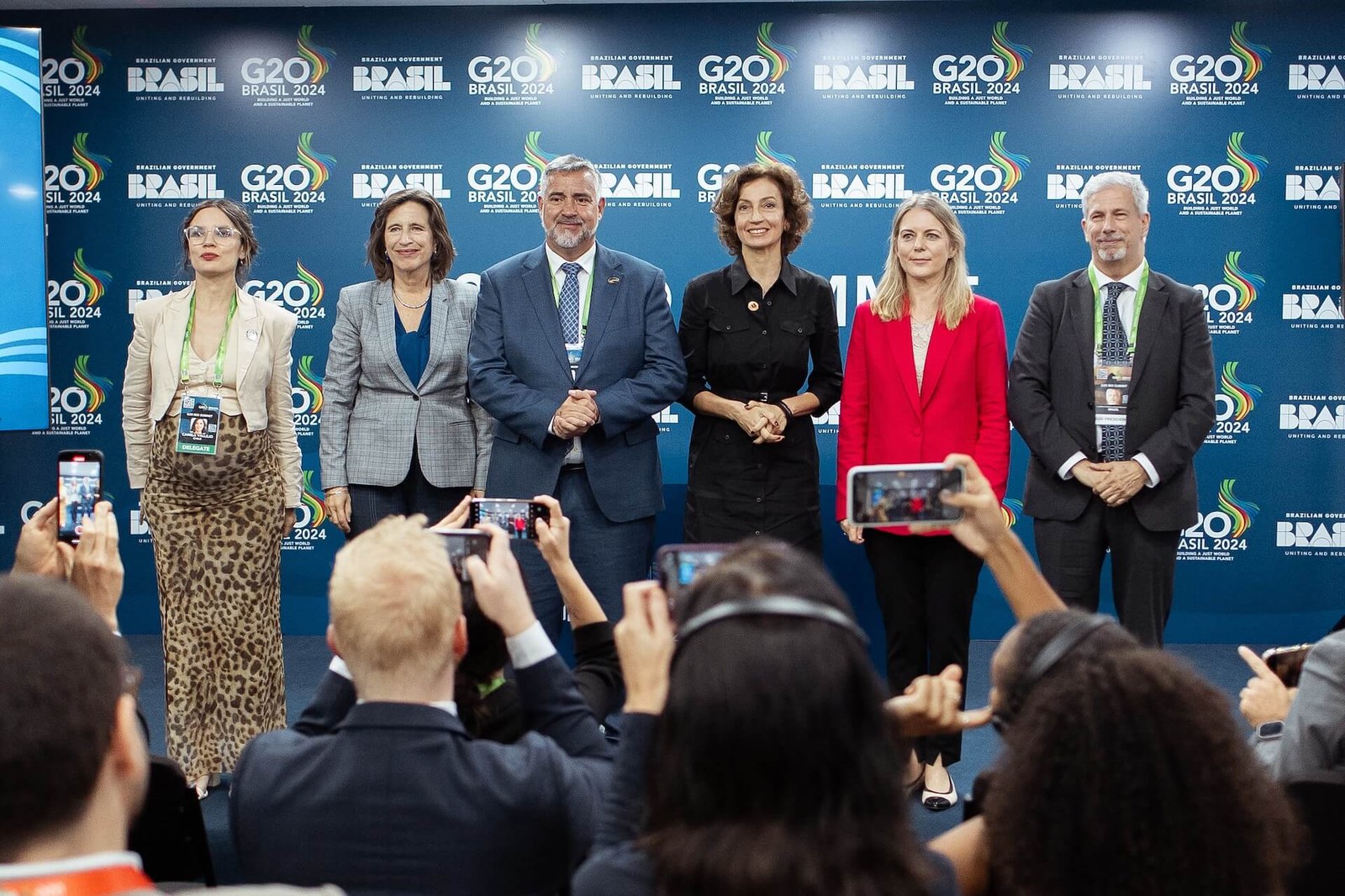Fact or Fake? Brasil, UN, and UNESCO launch Global Initiative for Information Integrity on Climate Change
A joint initiative launched on the last day of the G20 Leaders' Summit in Brasil aims to strengthen research and communication actions to tackle disinformation. Fake news and rumors contribute to delays and hinder mitigation actions against climate change.

The Global Initiative for Information Integrity on Climate Change is an important intervention to bolster support for urgent global actions at a time when scientists warn that the world is running out of time.
While initially discussed within the G20 framework, the Initiative is being established as a dedicated multilateral collaboration among States and international organizations to fund research and action promoting information integrity on climate issues. To expand the scope and breadth of research on climate disinformation and its impacts, the initiative will gather evidence from around the world to inform and strengthen strategic actions, support, and communications.
“Actions to fight climate change are also greatly affected by denialism and disinformation. Countries cannot tackle this problem individually. This initiative will bring together countries, international organizations, and networks of researchers to support joint efforts to combat disinformation and promote actions for COP30 in Brasil,” said President Lula in an opening speech on the second and final day of the G20 Leaders’ Summit Brasil, held in Rio de Janeiro, having its theme as “Sustainable Development and Energy Transition.”
A fund will finance research and communication campaigns
The countries involved in the Initiative will contribute to a fund managed by UNESCO, with an initial goal of raising $10 to $15 million over the next 36 months. These funds will be distributed as grants to non-governmental organizations conducting research on climate information integrity, developing communication strategies, and carrying out public awareness campaigns.
The United Nations (UN) and the United Nations Educational, Scientific and Cultural Organization(UNESCO) has become important partners of the Brazilian government in this challenge. Other countries and international organizations aligned with climate goals and commitment to information integrity are now invited to join. So far, Chile, Denmark, France, Morocco, the United Kingdom, and Sweden have already confirmed their participation.
“We must fight the coordinated disinformation campaigns impeding global progress on climate change, ranging from outright denial to greenwashing to harassment of climate scientists. Through this Initiative, we will work with researchers and partners to strengthen action against climate disinformation,” said UN Secretary-General António Guterres.
The risk posed by disinformation to the achievement of climate goals has been recognized by the Intergovernmental Panel on Climate Change (IPCC), which stated in 2022 that “deliberate undermining of science” was contributing to “misperceptions of the scientific consensus, uncertainty, disregarded risk and urgency, and dissent.”
The Chief Minister of the Secretariat for Social Communication of the Presidency of the Republic, Paulo Pimenta, said that Brasil's G20 presidency prioritized concrete deliveries and that the initiative adds to this effort of joining forces to tackle common problems. “Similar to the Global Alliance Against Hunger and Poverty, the Initiative we launched today also aims to get out of the discourse and go for practical actions,” he said.
He stressed that the issue of disinformation has gained relevance in international forums and that the construction of standard protocols and initiatives to curb this practice is urgent. Pimenta cited COP 30, which will be held in 2025 in Brasil, as an opportunity to definitively address this issue globally. “We want to build alternatives that serve as a reference for reliable information, invest in media education, and incorporate artificial intelligence into this agenda. We need to move away from generalizations and act concretely,” he concluded.
“Without access to reliable information about climate disruption, we can never hope to overcome it. Through this initiative, we will support the journalists and researchers investigating climate issues, sometimes at significant risk to themselves, and fight the climate-related disinformation running rampant on social media,” affirmed Audrey Azoulay, UNESCO’s Director-General.
The Initiative aligns with the commitment of the Global Digital Compact, adopted in September by UN Member States. Furthermore, it encourages UN entities, in collaboration with governments and stakeholders, to assess the impact of disinformation on achieving the Sustainable Development Goals.
For more information:
https://www.unesco.org/pt/information-integrity-climate-change
UN website page about the Climate Initiative: www.un.org/climatechange/information-integrity
*Translated by PGET-UFSC